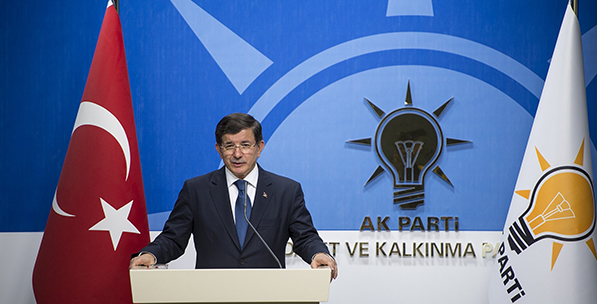Modern Turkish politics is experiencing a first, a care taker government is being established. Despite the Justice and Development Party (AK Party) placing first in the June 7 election with 41 percent of the vote, it was unable to gain the majority necessary to establish an administration on its own. This election, wherein the Republican People's Party (CHP) received 25 percent, the Nationalist Movement Party (MHP) 16 percent and the Peoples' Democratic Party (HDP) achieved 13 percent of the vote, was unable to finalize a coalition government scenario for Turkey. As per the Constitution, when no solution for the administrative vacuum came from Parliament, management of this process passed on to President Recep Tayyip Erdoğan, who gave the AK Party chairman and interim prime minister, Ahmet Davutoğlu, the duty of setting up an electoral administration.
The electoral administration, which will be set up according to the rules of the Constitution, must be representative of the votes received by each party. Accordingly, the AK Party will have 11, the CHP five and the MHP and HDP three representatives each in the Cabinet.
However, the CHP and MHP have both said they will not participate in this electoral administration. The HDP, on the other hand, did not close its doors to the electoral administration and expressed that it would take its place in the same electoral administration as the AK Party.
On Wednesday, Davutoğlu sent offer letters to representatives from the CHP, MHP and HDP. Davutoğlu's offer was one made to the representatives directly, not requiring the approval of their respective party leaders. Alongside this the attitude of the party leaders is very critical for representatives who are on the threshold of new elections. For this reason, the general expectation throughout the past week has been the formation of an electoral administration with AK Party and HDP representatives who would be working with independent ministers replacing CHP and MHP representatives who refuse the offers.
However, the result was different. Tuğrul Türkeş from the MHP announced that he had accepted the position despite the harsh attitude of MHP Chairman Devlet Bahçeli. This situation is important, not just for the political balance of the MHP, but also in setting up the discursive area of the new election coming up on Nov. 1.
The first point of emphasis is that Türkeş is not just an ordinary representative from the MHP. He is the son of MHP founder Alparslan Türkeş, and is a figure with great influence in MHP politics. Following the death of his father he struggled against Bahçeli for the leadership of the MHP in the 1990s but was unsuccessful, and the leadership went to Bahçeli. In the long term, however, he continued to work with Bahçeli.
Türkeş's acceptance of the position will bring with it the debate about whether there will be an atmosphere of rebellion against Bahçeli, who is said to have disregarded calls from the party's base and organization to become an administrative partner during the coalition meetings. Türkeş's acceptance of Davutoğlu's ministerial position also destroyed Bahçeli's early election strategy, which had been in effect since the June 7 elections. This is because Bahçeli has been exerting a great deal of effort ever since the conclusion of the June 7 elections to make sure that the AK Party would be in the same administration as the HDP. He built his entire discourse upon this. Bahçeli assumed that there would be an electoral administration that would bring the AK Party and HDP together in a situation where a decision did not come from Parliament and thought that this would provide him an opportunity to criticize the AK Party. The main argument in Bahçeli's hands on the path to the Nov. 1 elections was going to be that of the AK Party being in the same Cabinet as the "terror-supporting" and "PKK-mouthpiece" HDP. However, the presence of an MHP politician in the Cabinet defe







